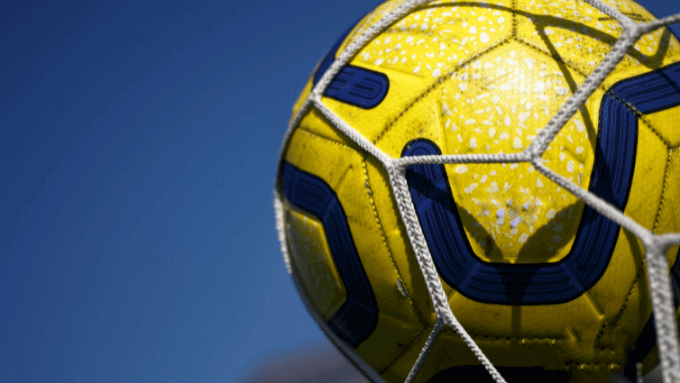Independency and Impartiality of TFF Civil Chambers in the Light of Law No. 7405 Regulations
Introduction
The independence and impartiality principles of the Civil Chambers of the Turkish Football Federation (“TFF”) constitute one of the pillars of sports law. In this context, the structural and functional characteristics of the Dispute Resolution Council (“DRC”) and the Arbitration Board of the TFF are vital for the fair and effective functioning of sports law. In recent years, national and international developments have necessitated the review and updating of the independence and impartiality standards of these boards. In particular, the criticisms of the European Court of Human Rights and subsequent legal regulations have directly affected the legal structure of the TFF and the dispute resolution processes of sports disputes.
In this article, the steps taken to ensure the independence and impartiality of the TFF Civil Chambers will be examined within the scope of the Law No. 7405 on Sports Clubs and Sports Federations (“Law No. 7405”) and Law No. 5894 on the Establishment and Duties of the Turkish Football Federation (“TFF Law”).
Procedure Adopted by the TFF
The two main legal bodies of the TFF, the Arbitration Board and the Dispute Resolution Council, were established to play a central role in the fair and effective adjudication of Turkish football. They function as first and second instance judicial mechanisms for the resolution of sporting disputes. While the Arbitration Board is generally positioned as the appeal authority, the Dispute Resolution Council operates as the first instance decision-making body. The structural features of both boards are critical for understanding the legal status of the TFF and the nature of sporting adjudication. In this context, the amendments made under Law No. 7405 and the TFF Law aimed to reinforce the independence and impartiality of these boards.
The structures and functioning of the Dispute Resolution Council and the Arbitration Board within the TFF represent an important judicial mechanism in Turkish football. However, criticisms have been raised from time to time regarding the composition and structure of these boards and the nature of their decisions. The DRC, as a first instance legal board established pursuant to Article 5 of the TFF Law, renders decisions on sporting penalties and training compensation. The members of this board are elected by the TFF Board of Directors and the transparency and independence of this selection process is sometimes questioned.
The Arbitration Board, the highest legal body of the TFF, reviews both administrative and disciplinary decisions and considers appeals against the first instance decisions of the DRC. The decisions of the Arbitration Board are generally considered final, which can lead to criticism of a lack of judicial review. Although the criticisms of the European Court of Human Rights and the subsequent amendments made by Law No. 7405 are considered steps towards strengthening the independence and impartiality of these boards, there are still areas of criticism in the structure and functioning of the boards.
Even though the system is criticized in Turkey, the arbitration procedure in sports proceedings is generally accepted as a fair and expeditious resolution method throughout the world. For example, there are similar arbitration boards in many European countries such as the Football Association of England (FA) and the Italian Football Federation (FIGC). They have an important role in the resolution of sporting disputes and are often integrated into the domestic legal system of federations. Moreover, in the international arena, institutions such as the Court of Arbitration for Sport (CAS) are an indicator of the prevalence and importance of arbitration in sports law. The existence of such tribunals emphasizes the unique nature of sports adjudication and the need to adjudicate athletes on the basis of fairness.
Dispute Resolution Council (DRC)
The structure and functioning of the DRC have been subject to some criticism. The transparency and independence of the selection process have been questioned from time to time, as the members of the Board are selected by the TFF Board of Directors. Although the DRC plays an important role in the first instance adjudication of sporting disputes, the fact that its decisions are not final and binding and that it offers the possibility to appeal to the Arbitration Board, may lead to prolonged proceedings in some cases. In this context, while the decisions and functioning of the DRC have an important place in the fair and effective adjudication of sports law, it requires continuous structural and functional improvements.
TFF Arbitration Board
The Arbitration Board, on the other hand, represents the final stage of the judicial process in Turkish football by evaluating appeals against the decisions of the DRC. This board is obliged to uphold the principles of independence and impartiality and is composed of members elected by the TFF Board of Directors. However, both the fact that the selection of the members is made by the TFF Board of Directors and the fact that the decisions of the Arbitration Board are considered final and beyond judicial review lead to criticism regarding the functioning of this board. In particular, the finality of the decisions may lead to criticisms of lack of judicial review and may conflict with the principles of the rule of law. Although Law No. 7405 aimed to bring more transparency and fairness to the functioning of the Arbitration Board, there are still areas of criticism in its structure and functioning.
Amendments to the TFF Civil Chambers by Law No. 7405
Law No. 7405 introduced various amendments to both the DRC and the TFF Arbitration Board. When the amendments foreseen for the DRC are examined, it is seen that the application fees and processes are regulated, and in line with the Code of Civil Procedure No. 6100, the fees determined depending on the value of the application for applications to the DRC, as well as the requirement to pay only lump sum fees in some cases, have been introduced. This is intended to make the application process more transparent and standardized. In addition, necessary arrangements have been made to ensure that notifications are made through more effective and up-to-date means of communication, although fax is preferred as a rule for the communication of the DRC with the applicant parties. In addition, necessary regulations were made to facilitate the file follow-up processes and to increase accessibility.
Significant changes have also been made regarding the structure of the TFF Arbitration Board and the nature of its decisions. The first noteworthy change concerns the finality of decisions and appeal procedures. While there was previously no objection authority against the decisions of the Arbitration Board, with the amendment introduced by Law No. 7405, a categorical distinction was made and while decisions regarding the management and discipline of football activities are still considered final, it is regulated that an annulment action may be filed against decisions other than these issues. This amendment, aims to increase the legal reviewability of the decisions, which is widely criticized among scholars. Indeed, the introduction of a review mechanism against certain decisions of the Arbitration Board is an important step taken to ensure judicial review of these decisions.
In addition, it is regulated that the members of the Arbitration Board must have at least ten years of legal experience. This aims to increase the expertise and reliability of the Arbitration Board in its decision-making processes. The last notable change concerns the implementation and enforcement/execution of awards. About the finalized decisions of the Board of Arbitration, the collection of the provisions of these decisions through the TFF has been envisaged, and the TFF’s supra-club authority has been utilized to support collection methods with different provisions and consequences, such as transfer bans, if necessary.
Independency and Impartiality of TFF Civil Chambers
The fact that the TFF Arbitration Board and the DRC have been subjected to serious criticism in terms of independence and impartiality questions the functioning of these institutions, which constitute one of the basic building blocks of Turkish sports law. These criticisms emphasize the problems regarding the judicial independence and impartiality of the boards and the lack of compliance with the Constitution and international legal norms.
At the heart of the TFF Arbitration Board’s and DRC’s behavior in violation of the principle of independence and impartiality is the appointment of the members by the TFF Board of Directors. This appointment process contradicts the principles of judicial independence and impartiality emphasized in Article 138 of the Constitution. The right to a fair trial requires the independence and impartiality of judicial bodies and judicial boards. This structural problem of the TFF is also incompatible with the right to a fair trial protected by Article 6 of the European Convention on Human Rights[1].
Furthermore, the exemption of the decisions of the Arbitration Board from judicial review, even though it has been stretched by Law No. 7405, is in serious conflict with the principle of the rule of law. This situation, which is incompatible with the fundamental provisions of the Constitution and the European Convention on Human Rights, amounts to a restriction of the freedom to seek justice and the right to a fair trial. This situation weakens the functionality of judicial review mechanisms, one of the fundamental requirements of the rule of law.
In Ali Rıza and Others v. Turkey[2], the European Court of Human Rights ruled that the TFF Arbitration Board was not sufficient in terms of independence and impartiality. In terms of international law, this decision should be evaluated within the framework of Turkey’s obligation to comply with the European Convention on Human Rights. This ECHR judgment shows that the legal structure and functioning of the TFF should be brought in line with the norms of the European Convention on Human Rights and emphasizes the need for legal regulations to be made to ensure the independence and impartiality of the boards.
These criticisms show that the TFF should continuously review and improve the independence and impartiality of its legal boards. The harmonization of sports law with national and international standards and adherence to the rule of law principles will strengthen the legal infrastructure of Turkish football and contribute to the protection of the rights of athletes and other interested parties. This will enhance the reputation and credibility of both the TFF and Turkey in the field of international law.
Conclusion
Despite these criticisms, it should not be forgotten that both boards play crucial roles in the fair and effective adjudication of Turkish football. The functioning of the DRC and the Arbitration Board provide solutions that are in line with the complex and dynamic nature of sports law and contribute to the protection of the rights of athletes. However, it is important that the principles of transparency and independence in the functioning of these boards are constantly reviewed and improved in order to build the legal infrastructure of Turkish football on a more solid foundation. In this context, structural adjustments and reforms need to continue in line with national and international legal standards.
- Erbeyin, Necip Fazıl; TFF Hukuk Kurullarının Bağımsızlığı ve Tarafsızlığı, Anadolu Üniversitesi Hukuk Fakültesi Dergisi; Cilt 9; Sayı 2, Temmuz 2023, p.549
- AİHM, Ali Rıza and Others v. Türkiye, B. No 30226/10, T. 28.01.2020.
All rights of this article are reserved. This article may not be used, reproduced, copied, published, distributed, or otherwise disseminated without quotation or Erdem & Erdem Law Firm's written consent. Any content created without citing the resource or Erdem & Erdem Law Firm’s written consent is regularly tracked, and legal action will be taken in case of violation.





